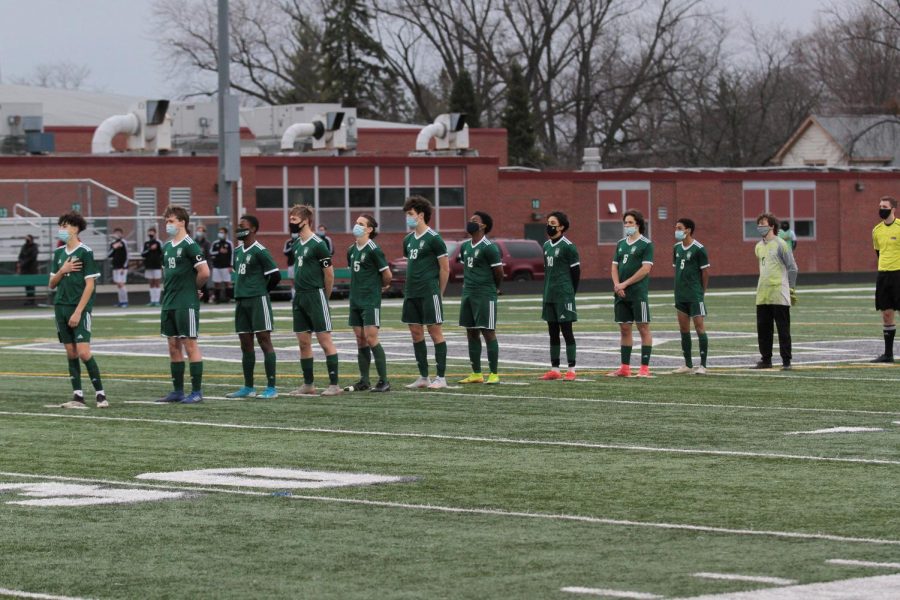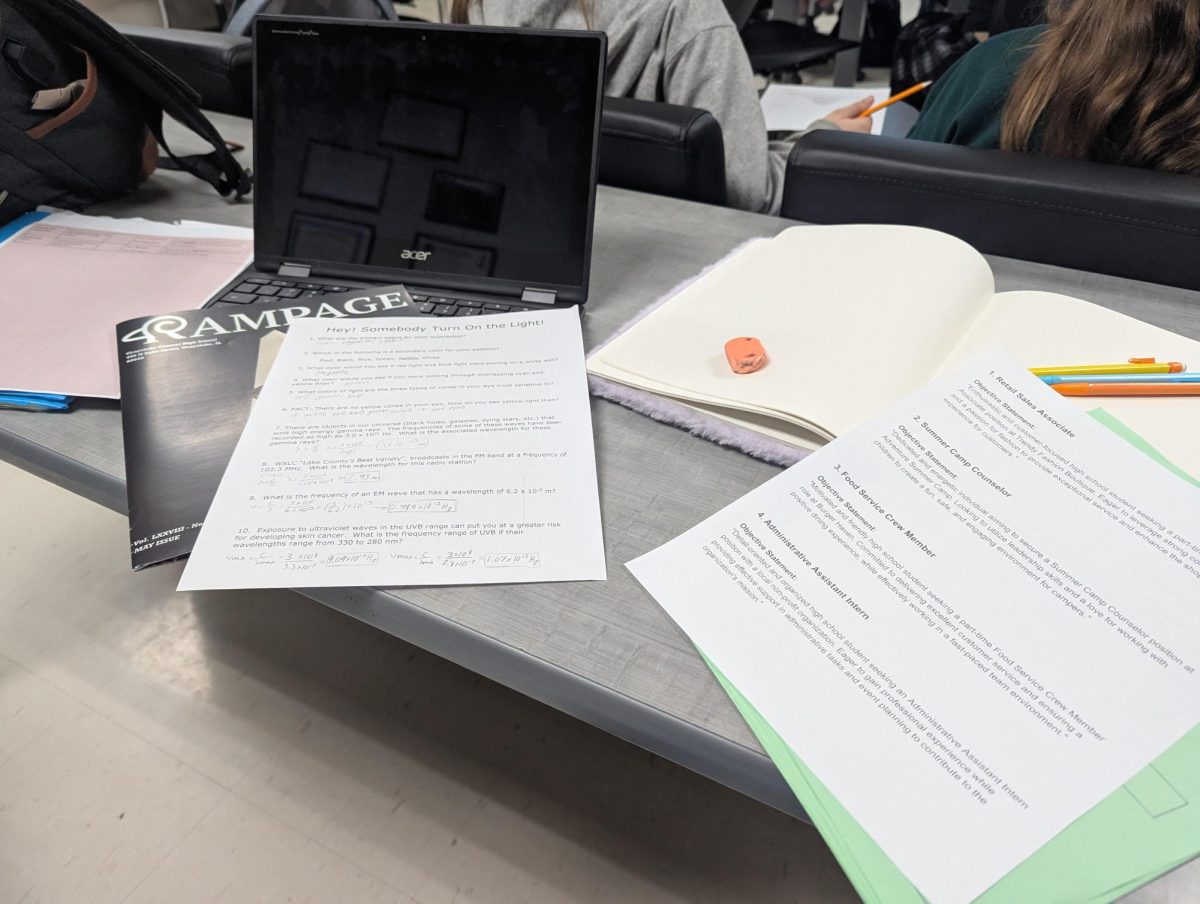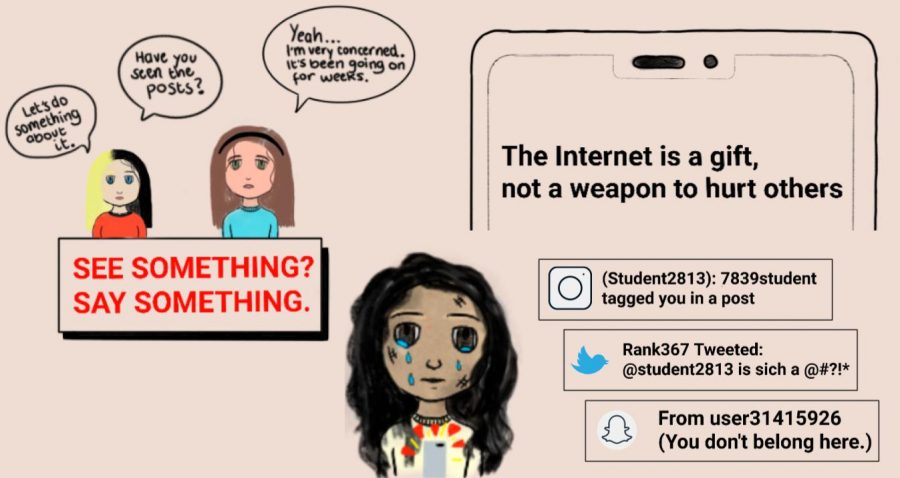Cyberbullying must stop
Cyberbullying is an issue that is usually ignored since some view it as a petty issue. Let’s talk about the significance of the issue.
If you want to help out and stop bullying at GCHS, go to https://www.d127.org/central/student/stop-bullying.
November 23, 2020
“He’s not affected by it, so why should you care?” “It was just a joke!” “It’s no big deal.” “Get over it.” Best advice ever–not.
We’ve all heard these before. Someone runs to you, and you shun their feelings or concerns to avoid dealing with its complexity. It’s easier to just ignore the hate, but what if that hate is too much to handle? How will you distinguish petty feelings from authentic ones?
Writing this story isn’t as simple as just stating facts and adding a tad bit of information from sources and calling it a day. Cyberbullying, which is using new technologies with the intent of harming another person, or any type of bullying for that matter, is mostly an individualized situation. Every person has their own reaction to events. You can’t predict what is bound to happen in every situation. There’s no concrete framework to how bullying works and how it affects everyone, but no matter how someone reacts–cyberbullying, bullying, whatever name you call it–it is not okay: not now, not ever.
Sadly, we do know that in this day and age that everyone is subject to cyberbullying. Why? The internet is everywhere. It has been made accessible to almost everyone anywhere. When you attack someone on the internet anonymously or even directly, you’ll never know who could see it. We could juxtapose cyberbullying to public humiliation, the only difference is that the attacker could be anonymous. They could be a person from the other side of the world or your neighbor, a classmate, or even your best friend.
The anonymity of cyberbullying is one of the factors that motivate aggressors since they could gain power and control over someone else by just typing a message and with little energy spent they got what they wanted. As for the victim, not knowing who is attacking you adds another layer of anxiety since you don’t know who to trust.
In addition to this, the victims suffer from psychological distress. According to psychiatrist Elias Aboujaoude in his article “Cyberbullying from the playground to ‘Insta’”, “Cyber Victims tend to have increased rates of depression, anxiety, and insomnia” when this progresses it could lead to suicide. Although our generation has overused the terms ‘depression, anxiety, and insomnia’ which makes them unalarming, these aren’t jokes or personality traits that you can brag about since they’ve worn out people, taken lives, and shattered hearts.
Perpetrators may use a fake account or a confession account to send hateful messages anonymously, or some would be more direct so they use their main account to carry out their hurtful intentions.
Unfortunately in our community, we aren’t safe from cyberbullying. So what are you going to do about it? What is your response going to be if you are in that type of situation?
Usually, when we’re upset we try and express it, which could be harmful or harmless depending on how we handle these intense feelings. For sure, you’ve tweeted or posted it, made something creative about it like drawings or paintings. You could’ve transferred those energies towards working out or doing a sport or you could’ve processed the situation by talking to a trusted individual.
The expression of these feelings isn’t wrong, but when it continues to generate hate and tear down another person, that’s when it’s dangerous. Suddenly, revenge and anger overpowers you and would drive you to do hurtful things to you and other people. So how will you choose to express these powerful feelings?
Although we can never fully safeguard ourselves from cyberbullying, dean Corey Schwalb advises students to be really picky on who to let in their accounts but what students can do is have a public account where they can share information that they’re comfortable with putting out and be able to be contacted by anyone through that platform. Through this, a student would have a less virtual footprint for perpetrators to use against them while having that connection to other people on the internet. In addition, counseling department chair Lori Mitchell urges students to generate positivity online and be mindful of others online.
As stakeholders of our community, remember that words hurt whether said or texted or posted or private messaged. They’ll leave a mark, people are just experts at hiding them. Be an upstander. Spread positivity today, right now. Go and send three positive messages to three different people and see how it goes. Let GCHS encourage each other, build one another up, create joy.







































